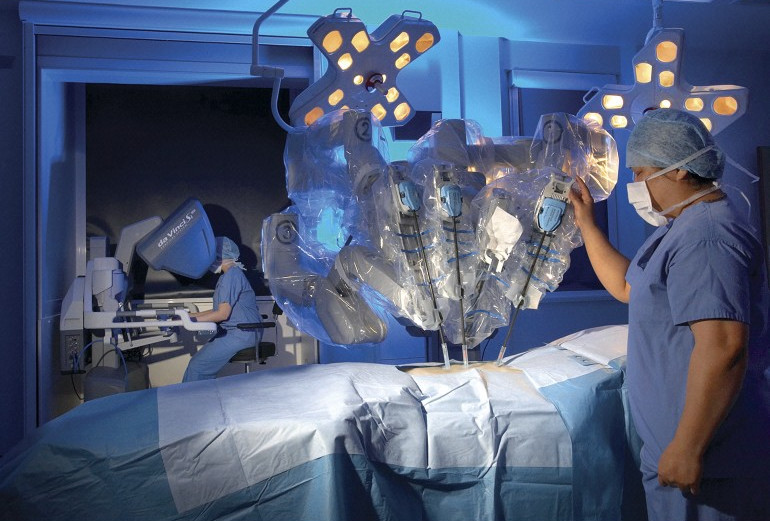The Antitrust Concerns Within the Apple Ecosystem

By Kaitlin Carroll
The US Department of Justice, along with 16 states, has recently filed a lawsuit against Apple for violating antitrust laws. Previous antitrust cases against Apple have pointed fingers at the high commission Apple receives on in-app purchases, restrictions on other developers’ music streaming apps, and attempts to fix prices on e-books.[1] Instead of pointing to one practice in particular, this lawsuit focuses more on the overall integration of Apple’s software and services across devices, and its refusal to allow the same seamless integration with non-Apple products.[2] The DOJ’s complaint states this abuse of power has led to Apple’s monopoly on the smartphone industry within the US.[3] While announcing the lawsuit during a press conference, Deputy AG Lisa Monaco stated that Apple’s tactics have “smothered an entire industry,” alleging that Apple limits third-party digital wallets, suppresses mobile cloud streaming services, blocks cross-platform messaging apps, and limits how well non-Apple smartwatches work with Apple devices.[4]
Being a monopoly in and of itself is not illegal, the issue arises when the monopoly is maintained using exclusionary methods, thereby stifling innovation and limiting consumer choice.[5] In this case, where is the line between a smart business strategy and an exclusionary practice? U.S Attorney General Merrick Garland says that Apple has gained their monopoly power not by innovating and making its own products better, but through making other products worse.[6]
One of the allegations, that Apple blocks cross-platform messaging, is in part referring to the “green bubble stigma” that many non-Apple users have felt.[7] Aside from the color, texting a non-Apple user also limits certain functions that iMessage users have come to rely on including high-quality photo sharing, message encryption, read receipts, typing indicators, and more.[8] The mobile phone industry as a whole has begun transitioning from the typical SMS (short message service) to RCS (rich communication services) which allows for better group messaging, high-resolution photo and video sharing, and message encryption.[9] After facing pressure from US and European regulators, Apple finally agreed to begin supporting RCS features for Android users—but the green bubbles will stay.[10]
The DOJ’s complaint also contends that by refusing to integrate software with non-Apple devices, Apple increases the “switching cost” that users face when trying to switch smartphones.[11] For example, the complaint states that since Apple Watches are exclusively compatible with iPhones, a customer with both an iPhone and Apple Watch might think twice before switching to an Android.[12]
Many of the exclusionary practices Apple is being accused of are reminiscent of the DOJ’s 1990 case against Microsoft.[13] There, the court found that Microsoft had invested significant resources in quashing competitors, including Apple. The DOJ asserts that the Microsoft ruling was pivotal in creating a healthier competition within the PC market and may have assisted Apple in reaching the success it has today.[14]
This case is expected to take years to resolve but ultimately the DOJ and others are hoping that this case fundamentally changes the way Apple does business in the US, and similarly to the Microsoft case, leads to healthier competition within the smartphone market.[15] Even with a ruling against Apple, the company would be expected to bounce back like Microsoft did after its lawsuit over twenty years ago.[16] For a company as strong as Apple, forcing them to play by the rules should only lead to more innovation and growth not only within the company but throughout the industry, which will then lead to more choices for consumers.
Image Source: https://www.wsj.com/articles/why-apples-imessage-is-winning-teens-dread-the-green-text-bubble-11641618009
[1] See United States v. Apple, 791 F.3d 290 (2nd Cir. 2015); Arjun Kharpal, Apple hit with more than $1.95 billion EU antitrust fine over music streaming, CNBC (Mar. 4, 2024, 7:14 AM), https://www.cnbc.com/2024/03/04/apple-hit-with-more-than-1point95-billion-eu-antitrust-fine-over-music-streaming.html#:~:text=The%20European%20Commission%2C%20the%20European,distribution%20of%20music%20streaming%20apps.
[2] Ben Thompson, United States v. Apple, Stratechery (Mar. 25, 2024), https://stratechery.com/2024/united-states-v-apple/.
[3] Id.
[4] Victoria Song, US v. Apple: everything you need to know, The Verge (Apr. 2, 2024, 7:00 AM), https://www.theverge.com/24107581/doj-v-apple-antitrust-monoply-news-updates.
[5] Anticompetitive Practices, FTC (last visited Apr. 12, 2024), https://www.ftc.gov/enforcement/anticompetitive-practices.
[6] Cristiano Lima-Strong, Justice Department, states accuse Apple of holding a smartphone monopoly, The Washington Post, (Apr. 21, 2014, 4:57 PM), https://washingtonpost.com/technology/2024/03/21/apple-doj-antitrust-lawsuit-smartphone/.
[7] Bobby Allyn, ‘Green bubble shaming’ at play in DOJ suit against Apple, NPR (Mar. 28, 2024; 5:48 PM), https://www.npr.org/2024/03/28/1241443505/green-bubble-shaming-android-apple-iphone.
[8] Id.
[9] Id.
[10] Id.
[11] John Bergmayer, The DOJ Case Against Apple May Spur the Next Wave of Tech Innovation, Public Knowledge (Apr. 5, 2024), https://publicknowledge.org/the-doj-case-against-apple-may-spur-the-next-wave-of-tech-innovation/.
[12] Id.
[13] Anshel Sag, Apple’s DOJ Lawsuit Was Inevitable And Will Forever, Forbes (Apr. 5, 2024, 12:01 PM), https://www.forbes.com/sites/moorinsights/2024/04/05/apples-doj-lawsuit-was-inevitable-and-will-change-the-company-forever/?sh=5d9c84e616b7.
[14] Id.
[15] Id.
[16] Id.




.webp)